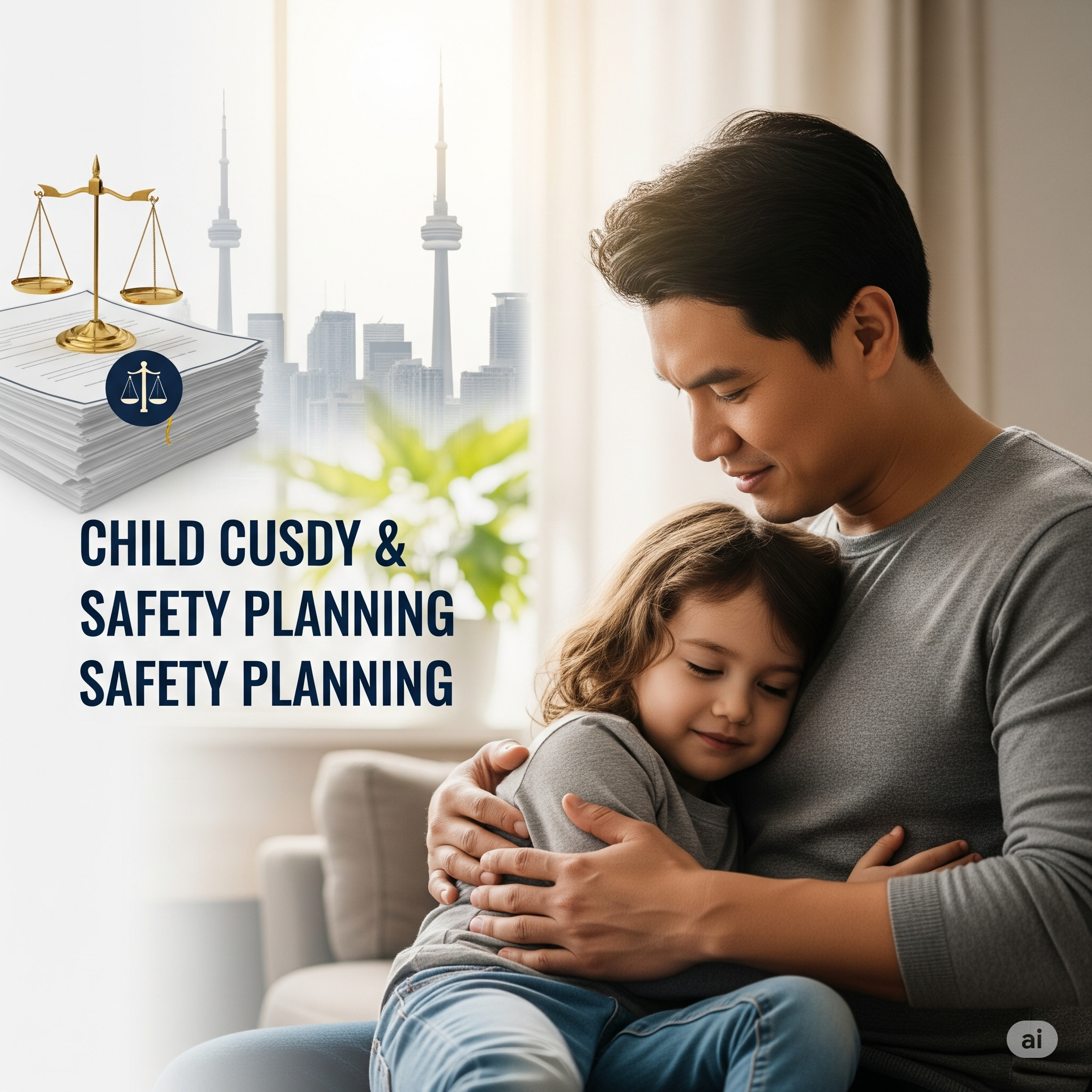Navigating Child Custody and Safety Planning in Toronto
Ensuring your child's safety and well-being during and after domestic violence is paramount. This guide provides essential information on navigating child custody in Toronto, with a critical focus on robust safety planning for children.

💡 Navigating Child Custody and Safety Planning in Toronto
When domestic violence impacts a family, the safety and well-being of children become the absolute top priority. Navigating child custody matters in Toronto's legal system can be profoundly challenging, especially when dealing with an abusive ex-partner. This guide provides essential information on understanding custody concepts and, critically, how to implement comprehensive safety planning to protect your children.
Understanding Custody and Access in the Context of Domestic Violence
In Ontario, all decisions regarding children are based on the "best interests of the child." When domestic violence is a factor, the court must consider the history of violence and its impact on the child and the parent's ability to care for them.
Custody: Refers to decision-making authority for the child (e.g., health, education, religion). This can be Sole Custody (one parent makes decisions) or Joint Custody (parents make decisions together). In cases of abuse, joint custody may not be appropriate if it exposes the survivor to ongoing control or conflict.
Access: Refers to the time a child spends with each parent. This can be supervised, unsupervised, or denied entirely depending on safety concerns.
Comprehensive Safety Planning for Children
Safety planning for children impacted by domestic violence requires careful thought and often legal intervention.
Physical Safety During Exchanges:
Safe Exchange Locations: If unsupervised exchanges are necessary, choose neutral, public places (e.g., police stations, community centres with security, or places with active surveillance).
Third-Party Facilitation: Utilize a trusted friend, family member, or professional service to facilitate exchanges if direct contact is unsafe.
No Contact Provisions: Ensure court orders prohibit the abuser from approaching your home, workplace, or the child's school/daycare.
Supervised Access:
If there are concerns about a parent's ability to care for the child safely without supervision (due to violence, substance abuse, mental health issues etc.), the court may order Supervised Access. This means visits occur only in the presence of a neutral third party or at a supervised access centre.
Toronto Supervised Access Centres: Toronto has court-affiliated supervised access centres that provide safe, neutral locations for visits and exchanges. Your lawyer or Family Court Support Worker can provide referrals.
Limiting Unsafe Contact:
Restraining Orders/Protection Orders: These orders can include specific provisions protecting children, such as prohibiting contact or requiring specific distances.
Communication Protocols: Ensure all communication regarding children is clear, in writing (e.g., through a parenting app), and strictly business-like, avoiding personal attacks.
Emotional Safety and Support:
Trauma-Informed Counseling: Seek counseling for your child to help them process their experiences. Many children's mental health services in Toronto specialize in trauma.
Protect from Conflict: While challenging, try to shield your children from direct conflict or conversations about the abuse.
Reassurance: Reassure your children that the abuse is not their fault and that you are working to keep them safe.
Digital Safety:
- If the abuser uses technology to monitor or control, work with your lawyer to include provisions in court orders about online behaviour and child access to devices.
Legal Strategies for Custody in Abuse Cases
Your lawyer plays a crucial role in advocating for your child's safety in court:
Affidavits: Your sworn statement to the court must clearly detail all incidents of abuse, especially those witnessed by the children or affecting their well-being.
Requesting Supervised Access or No Contact: Based on the evidence, your lawyer will argue for parenting arrangements that prioritize safety.
Child's Voice: In some cases, the court may appoint a lawyer for the child (through the Office of the Children's Lawyer) or consider the child's wishes, depending on their age and maturity.
Children's Aid Society (CAS) Involvement: If the CAS is involved, they will conduct their own investigation and may provide recommendations to the court regarding custody and access, always with the child's best interests as the focus.
Working with Professionals
Lawyer: Essential for navigating the legal complexities and advocating for your child's safety.
Family Court Support Worker (FCSW): Available in Ontario courts, FCSWs provide emotional support, safety planning, court orientation, and referrals.
Child Protection Agencies (CAS): If there are concerns about a child's safety, CAS has a mandate to investigate and may intervene to protect the child.
Therapists/Counsellors: For both you and your child, to help process trauma and build coping skills.
Documentation is Key
Maintain meticulous records of all incidents of abuse, particularly those involving the children or impacting their safety and well-being. This documentation will be crucial evidence in court.
Navigating child custody and safety planning after domestic violence requires courage, resilience, and strategic action. By leveraging legal avenues, implementing thorough safety plans, and engaging with supportive professionals in Toronto, you can work towards securing a safe, stable, and healthy future for your children. You are taking powerful steps to protect them.
